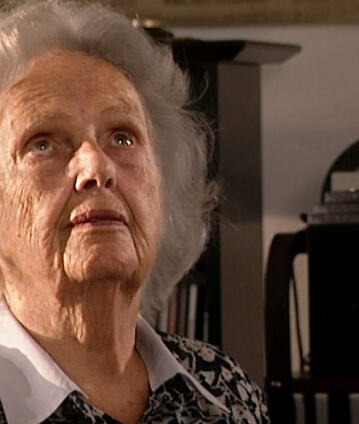Furtwängler’s love

For us today, Wilhelm Furtwängler is a monument: immense and unapproachable. The documentary Furtwängler’s love from 2004 provides us with the opportunity to get to know the man behind the conductor. At the centre is his wife Elisabeth, who gives a vivid and thoughtful account of her years at Furtwängler’s side, full of charm and wit.
It was in 1943 when Wilhelm Furtwängler married his second wife, Elisabeth Ackermann. The interviews which the director Jan Schmidt-Garre conducts with her cover a broad sphere – from Furtwängler’s courting of the woman 25 years his junior, to his death in 1954. Furtwängler’s most difficult decision of these years is also discussed: the question of whether to emigrate during the Nazi era. Ultimately, Furtwängler decided not to leave, and remained in Germany with his orchestra, the Berliner Philharmoniker, where he had been chief conductor since 1922.
Elisabeth Furtwängler’s reports are mirrored by quotes from her husband, such as when it comes to his disappointment at his lack of recognition as a composer. No less interesting are Furtwängler’s comments on conducting, his distrust of the mere beating of time, which he sets against the “greatest goal a conductor can achieve”: the legato melody, the “living, breathing flow.” Furtwängler also talks about love: It is “the opposite of judging, of comparing, it sees the incomparable, the unique.” And so the documentary makes us realise that it was not titanic remoteness that was at the centre of the musician Wilhelm Furtwängler, but sensibility and a rich inner life.
A film by Jan Schmidt-Garre (2004)
Categories
Artists
© 2004 pars media